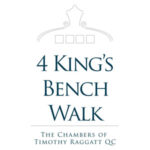Mark Pawlowski examines the continuing role of the resulting trust in the context of investment and family property ‘Where property was purchased as an investment (as opposed to a family home), the presumption of joint ownership does not apply.’ Although the resulting trust has played a lessening role as an appropriate mechanism for determining beneficial …
Continue reading "Trusts: Mixed messages"
This post is only available to members.
Wills & Trusts Law Reports | Spring 2018 #171W and M were married in 1969 and divorced in 1974. During their marriage, they bought a leasehold property with the proceeds of their former matrimonial home and a mortgage loan for the balance. The benefit of the long lease of the property was conveyed to them as joint tenants. M moved out of the property in 1973 and began divorce proceedings. No steps were taken in the divorce to deal with the ownership of the house, which remained vested in them as joint tenants. After M left the property, W had treated it as his own, insuring, maintaining and improving it and, soon after the divorce,...
Richard Adams clarifies the current position on beneficial ownership in the event of relationship breakdown ‘What the case highlights of course is the importance of those in relationships of this nature to document clearly their intentions as to respective ownership, and indeed to do so prior to any investment being made.’ The Privy Council recently …
Continue reading "Jointly Held Assets: Owning it"
This post is only available to members.
Chris Bryden and Jyoti Wood analyse the Privy Council decision in Marr v Collie and the significance of a commercial aspect to a personal relationship ‘The Privy Council has made it abundantly clear that it is intention, not presumption, that matters.’ In Marr v Collie [2017] the Privy Council was concerned with an appeal in …
Continue reading "Cohabitants: Seeking clarity"
This post is only available to members.
Wills & Trusts Law Reports | Summer 2017 #168The respondents (Rs) are a married couple but at all times after 2001 were estranged and living apart. The wife (R2) purchased a property (the property) in 2003 using monies from another property owned by her and the remainder by interest-only mortgage. The title to the property was in R2’s sole name and she moved in with her children. The husband (R1) never lived in the property.
Shortly after purchase, Rs signed a declaration of trust declaring inter alia that R2 held the property on trust for herself and R1 in equal shares, that she would register R1’s interest and ...
Mark Pawlowski summarises how a non-owning cohabitant can obtain capital provision under the Children Act 1989 ‘The practical effect of a settlement/transfer order made under Sch 1 is that, during the period of the children’s education, the house is held on trust for the non-owning party to the exclusion of the other party for the …
Continue reading "Cohabitants: Home truths"
This post is only available to members.
Don McCue examines the lessons from Curran v Collins [2015] ‘Two issues currently need to be resolved as a matter of some urgency… First, in no-agreement cases, whether the Rosset threshold requirement should be relaxed. Second, the question of inference or imputation needs clarification.’ Claims on constructive trust principles to a share of the beneficial …
Continue reading "Constructive Trust Claims: Excuses, detriment and imputation"
This post is only available to members.
Rupert Higgins considers some cases highlighting the problems with hastily created declarations of trust ‘A guide to defeating creditors is long overdue. So here, too late for Mrs Rahman but for the benefit of readers, is a bluffers’ guide to bluffing.’ As controversial political figures go, it would be hard to find a candidate in …
Continue reading "Beneficial Interests: Defeating creditors: a how (not) to guide"
This post is only available to members.
Graeme Fraser and Stephen Morrall consider the treatment of joint investments in properties and businesses by a cohabiting couple ‘The courts treat properties used as family homes and investment properties differently and are much more inclined to find a common interest constructive trust in relation to a family home.’ The volatile stock market, high property …
Continue reading "Cohabitants: An unequal partnership?"
This post is only available to members.
Wills & Trusts Law Reports | March 2016 #157This was an appeal against a decision that Ms Curran, the appellant, had not acquired a beneficial interest in property in the sole name of Mr Collins, the respondent. Mr Collins and Ms Curran were in a relationship from about 1978 until 2010. However, she did not move in to live with Mr Collins until 2002, having maintained a close relationship with her own family.
From about 1994 onwards, the couple bred Airedale terriers. Over the course of the relationship, Mr Collins owned three properties in his sole name, referred to as the Bendfont flat, the Feltham house and The Haven. He...







